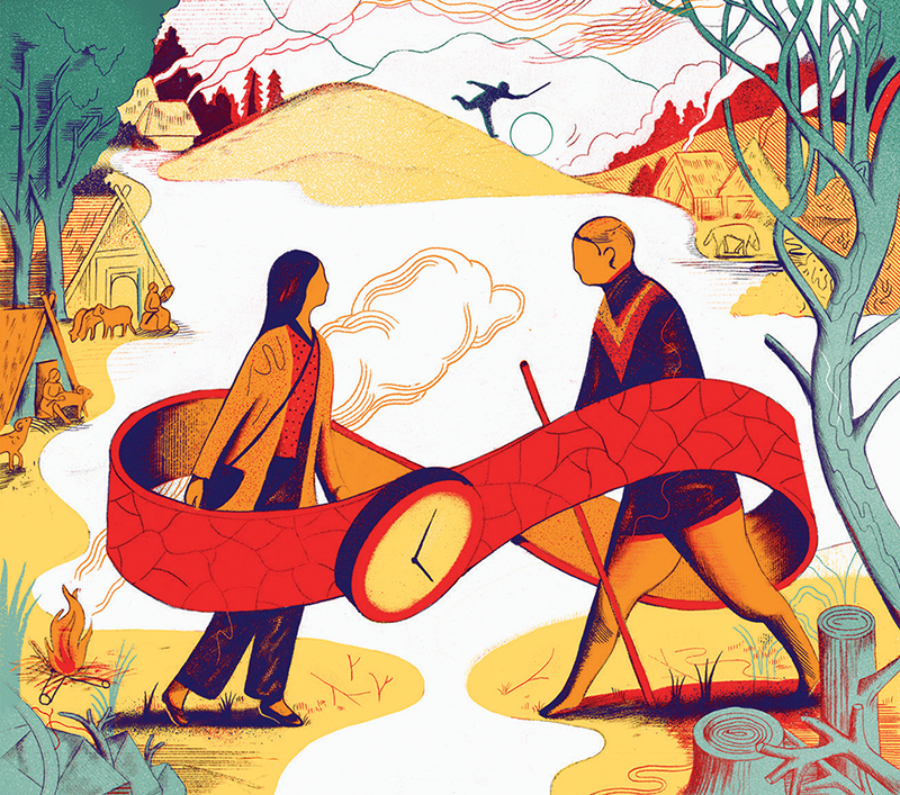
Illustration by Icinori
The Souvenir Museum
Perhaps she should have known that she would find her lost love—her Viking husband, gone these many years—in Sydesgaard, on the island of Funen, in the village of his people. Asleep in the hut of the medicine woman, comforted by the medicine woman, loved by the medicine woman, who was (it turned out) a podiatrist from Aarhus named Flora. The village itself was an educational site and a vacation spot where, if you wanted, you could wear a costume and spin wool for fun. As for Aksel—was he Joanna’s common-law ex-husband, or ex-common-law husband? Eleven years ago they had…






































































































